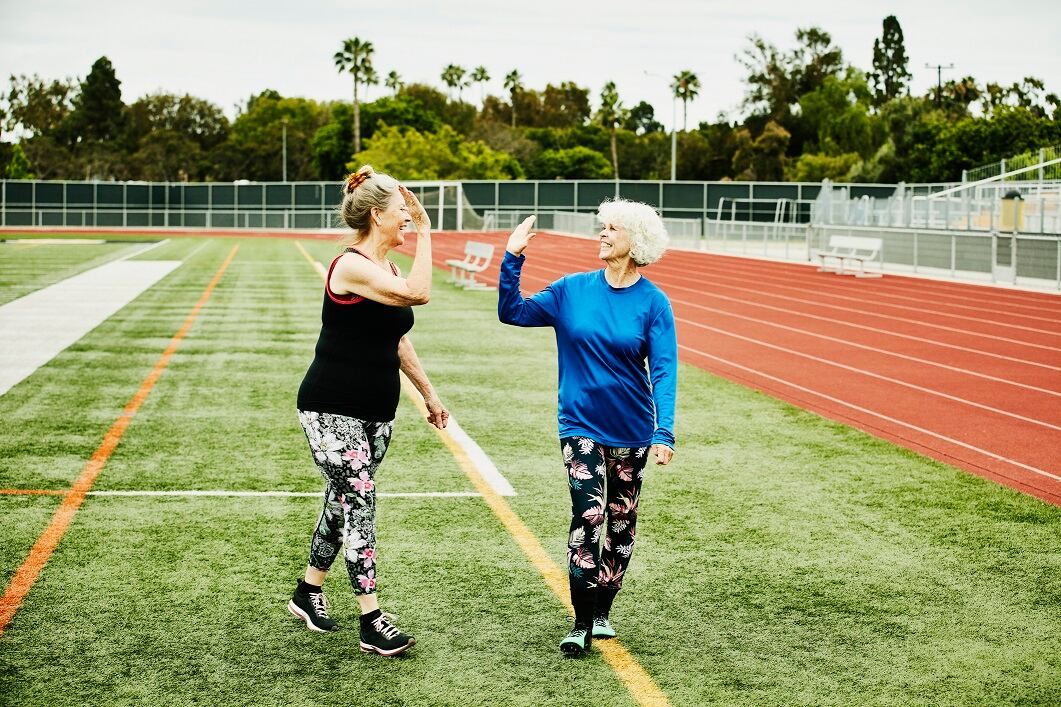The study identified 9 and 13 distinct microbial taxa that were significantly enriched in the case and control group groups, respectively, following linear discriminant analysis (LDA).
Significantly lower amounts of the Bacteriode genus were found in the microbiomes of elderly women with sarcopenia when compared with healthy controls.
Yet, the significance of the Bifidobacterium longum species was identified following further analysis to achieve an area under the curve (AUC) calculation of 0.674, suggesting that it would be a more accurate biomarker of the disease over the other identified species. Thus, the researchers concluded that B. longum “may have a protective effect on elderly women with sarcopenia”, highlighting potential treatment intervention opportunities.
“There are relatively few clinical studies on the effect of gut microbiota on sarcopenia in China, and our study provides more data on the association between gut microbiota composition and sarcopenia in older women”, the Chinese researchers stress.
Muscle and the microbiome
With research into the importance of the gut microbiome on many aspects of health still growing, so do the connections between its dysbiosis and an array of health conditions.
It is known that there is a relationship between increasing age and gut dysbiosis, as well as reductions in muscle mass. Furthermore, there have been growing attention into the theory of the muscle-gut axis, with studies suggesting changes to microbial diversity and composition may incur inflammation and anabolic resistance, which may result in reduced muscle size and function.
Sarcopenia is a highly common condition in the growing aging population, with a prevalence noted to be 50% in some regions in those aged 80-89. Whilst substantially reducing quality of life, it is noted to increase the risk of further injury, such as fractures and disability. With treatment interventions established to focus on nutrition and exercise, it is suggested that the gut microbiota may act as a vital intermediatory link between these methods and the sarcopenia prevalence.
Following the substantial heterogeneity reported in previous studies investigating the microbiotas of sarcopenia patients, resulting from variations in bacterial populations by geography and gender, the present case-control study aimed to explore the effect of the gut microbiota on sarcopenia in elderly women.
Study
The research included women aged 65-75 years old from districts within Shanghai, China, of which 50 were the healthy controls, whilst 50 were sarcopenia patients.
Significant reductions in factors such as body weight, BMI, muscle mass, grip strength, energy intake, and totally and high-quality protein intakes were noted in the cases, when compared to the controls.
Following metagenomic sequencing of the microbiota, it was noted that Bacteroides species were significantly lower in those with sarcopenia, including Bacteroides fluxus, Bacteroides coprophilus, Bacteroides coprocola. Further univariate analysis revealed these species were significantly positively associated with skeletal muscle mass.
LDA effect size showed that 9 and 13 distinct microbial taxa were significantly enriched in the case and control groups respectively. Of these, the species of Prevotella copri and Bifidobacterium longum were significantly different between the groups, with Bifidobacterium longum demonstrating significant influence suggesting its potential as a biomarker of sarcopenia.
Explained
“Bifidobacterium longum may be a beneficial species for sarcopenia, as demonstrated in several animal experiments and human trials conducted in other countries. A clinical trial in which Bifidobacterium longum was orally administered to mice for 12 weeks reported that Bifidobacterium longum improved the gastrocnemius and tibialis muscles and enhanced muscle functions such as grip strength and physical endurance,” the researchers emphasise, highlighting the alignment of their findings with previous studies.
With regards to the potential mechanism of action, they explain: “Bifidobacterium longum may affect sarcopenia through the action of its metabolites, such as short-chain fatty acids (acetate, propionate, and butyrate), which are central to regulating immune and metabolic homeostasis. Bifidobacterium longum also contributes to the absorption and utilization of vitamin D and minerals such as calcium, phosphorus, and iron, which are important for muscle metabolism.”
They stress the need for further intervention studies to further explore the findings, utilising samples more representative of the population with greater levels of control.
Source: Nutrients
https://doi.org/10.3390/nu15051266
“Bifidobacterium as a Potential Biomarker of Sarcopenia in Elderly Women”
by Zhengyuan Wang, Xin Xu, Yangzong Deji, Shanxi Gao, Chunxiang Wu, Qi Song, Zehuan Shi, Xuesong Xiang, Jiajie Zang and Jin Su

